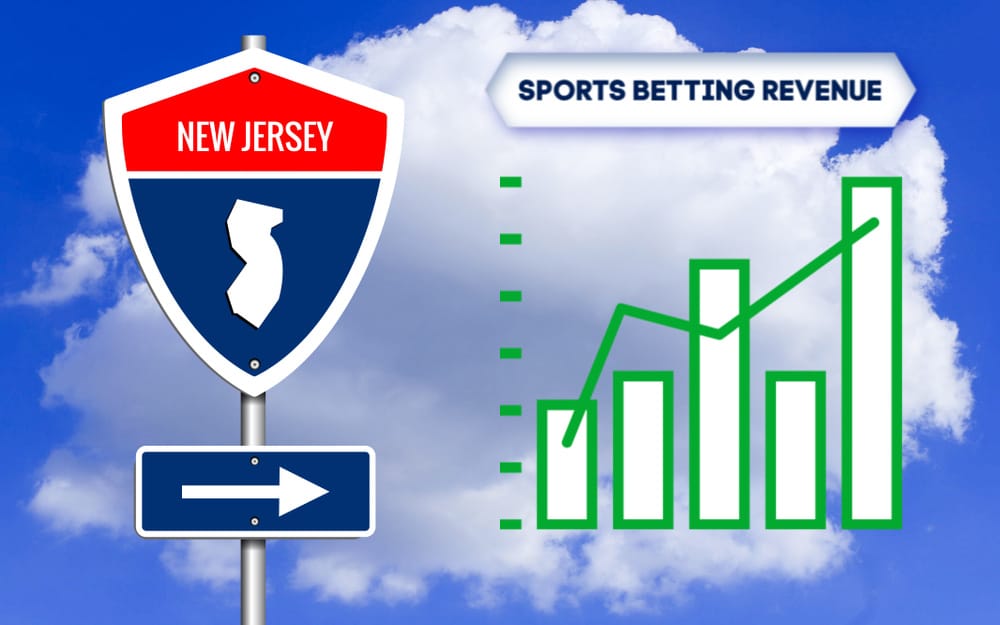We knew that November was going to be a huge month for sports betting across the United States. In those states that offer online sports betting, November is the busiest month of the year. College basketball gets added to a betting board that already featured the NFL, college football, NBA, NHL, and all of the other markets like UFC, boxing, soccer, golf, tennis, and the like.
The numbers are rolling in for the month of November and they have even exceeded expectations.
The state of New Jersey saw a whopping $562 million worth of wagers across its sportsbooks. The previous high for a month came in October with $488 million. More. Than. Half. A Billion. Dollars. How are there states that don’t have sports betting yet? Not all of them are going to be New Jersey, especially since the Garden State started it all with the challenge of PASPA, but these numbers are incredible.
For a frame of reference, the state of Nevada, where sports betting has been legal for a long time, took $581 million in wagers in November 2018. As the figures come out for 2019, we should get another data point with which to compare, but the likelihood is that Nevada will be somewhere in the same ballpark as last year.
That means that it is very much possible that New Jersey passes Nevada for November 2020. Something thought to be impossible is not that far away from becoming a reality. The growth of sports betting in New Jersey and in states across the country has been simply stunning.
As we take a look at some more specific numbers, it is worth noting that the year-to-date handle in New Jersey has now exceeded $4 billion. Billion. With a B. As in three commas. The popularity of sports betting in New Jersey and the state’s proximity to New York City has created some kind of tidal wave in the betting world and it is sweeping across the nation with several states, including Colorado, Michigan, and Illinois, coming online next year.
Of the $562,675,543 handle, $486,784,645 came from online wagering through the apps and the websites. That is over 86.5% of the total amount of money wagered. Retail sportsbooks only took in about $76.9 million. We knew that the approval for sportsbook apps and mobile wagering was going to cause a lot of growth in the states that have adopted those policies and we see it on a monthly basis in all of them.
The sports wagering gross revenue for New Jersey in November 2019 was $32.9 million, which was a 54.8% increase from what NJ took in for November 2018. Total gaming taxes in the state across all forms of gambling were $27.4 million.
FanDuel, DraftKings, and PointsBet are still the primary revenue drivers in New Jersey. Meadowlands Racetrack has FanDuel and PointsBet and took in $135.4 million in revenue in November. Resorts Digital, which has DraftKings, Fox Bet, and the Resorts app, was second with $70.3 million. None of the other operators and sportsbooks were particularly close. It is interesting that we see FanDuel have such a big piece of the Pennsylvania market as well. We expected the DFS presence and familiarity to outweigh the more traditional gaming operators like William Hill, Caesars, Hard Rock, Borgata, BetMGM, and Golden Nugget, but the manner in which DraftKings and FanDuel have dominated the market is really impressive.
The high hold percentage on parlays at 12.5% has been a major revenue driver for the sportsbooks. As of the end of November, well over $700 million had been bet on football with a 5.6% hold percentage for the house. The basketball hold percentage across more than $800 million in wagers is just 4.6% and the hold percentage in baseball was just 3.9% for the season. Bettors seem to be doing fairly okay for themselves if they can stay away from parlays.
Something extremely interesting about the NJ figures is that the “Other” category, which encompasses things like NASCAR, UFC, golf, tennis, soccer, hockey, and additional non-football, basketball, or baseball offerings, has brought in over $1 billion in handle with a hold percentage just over 5%. Those “niche” markets are more popular in New Jersey than they are in Nevada. We’ll see if that trend continues. We have no reason to believe that it won’t.
For more on the New Jersey figures, you can check out the official report from the New Jersey Department of Law and Public Safety here.




